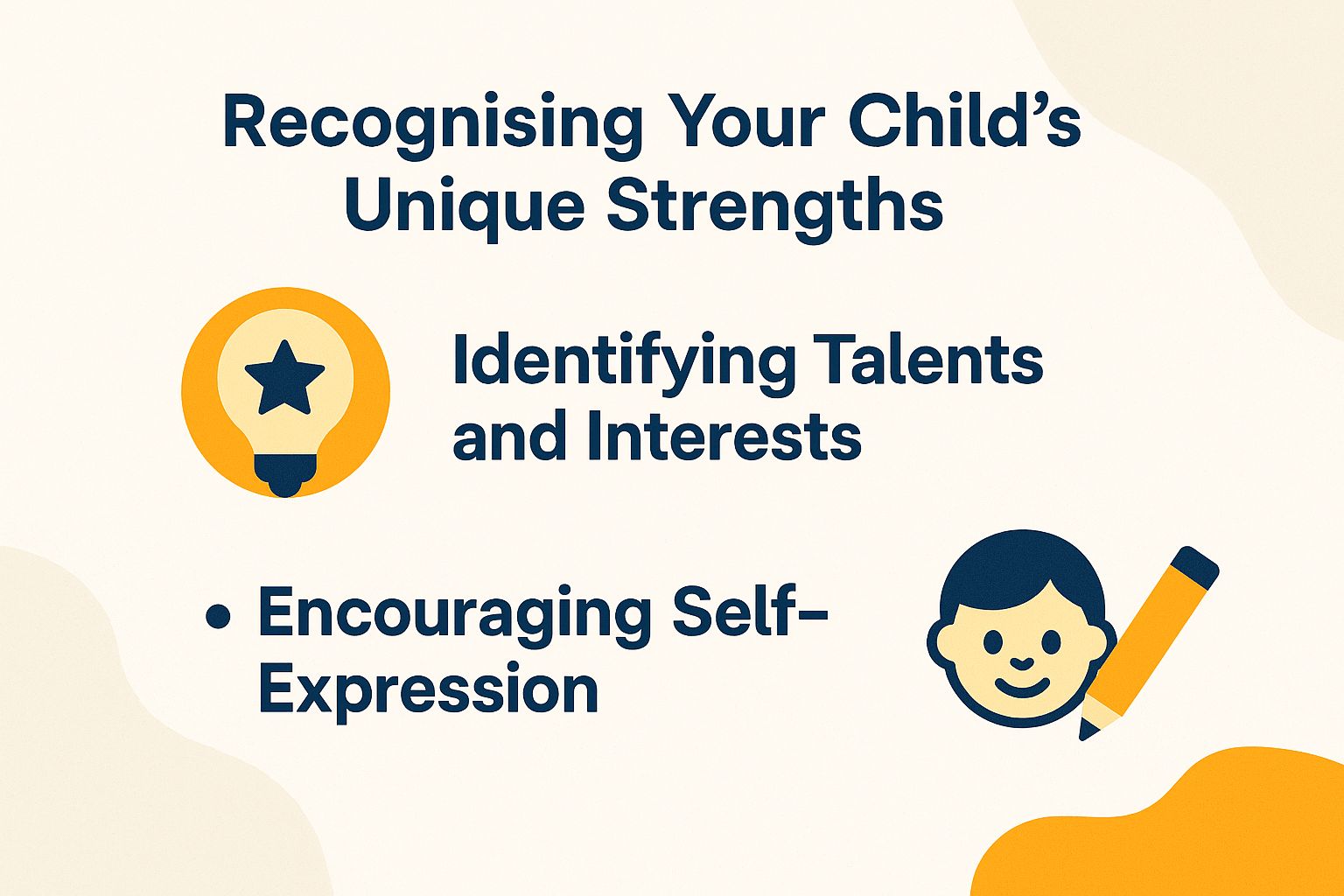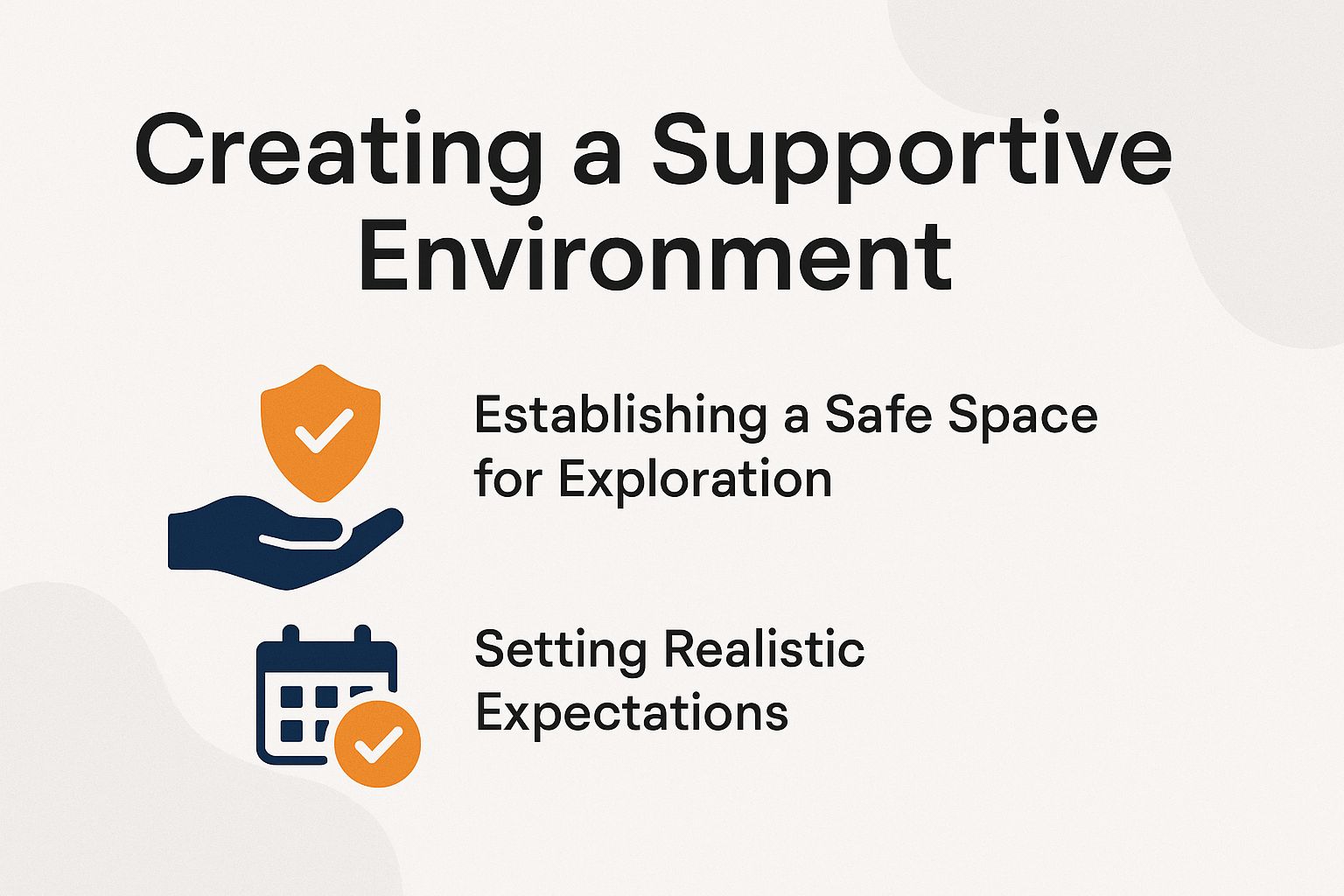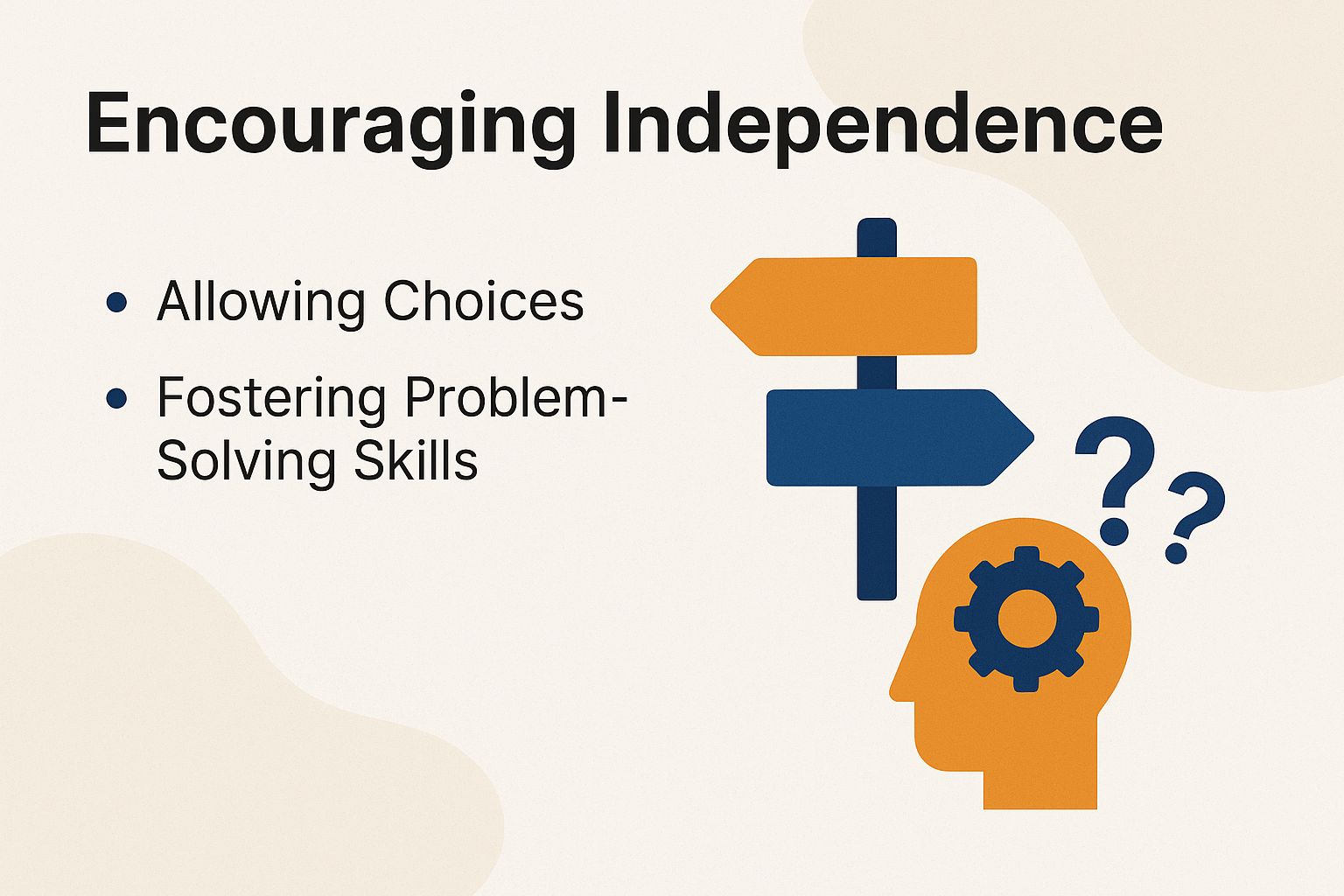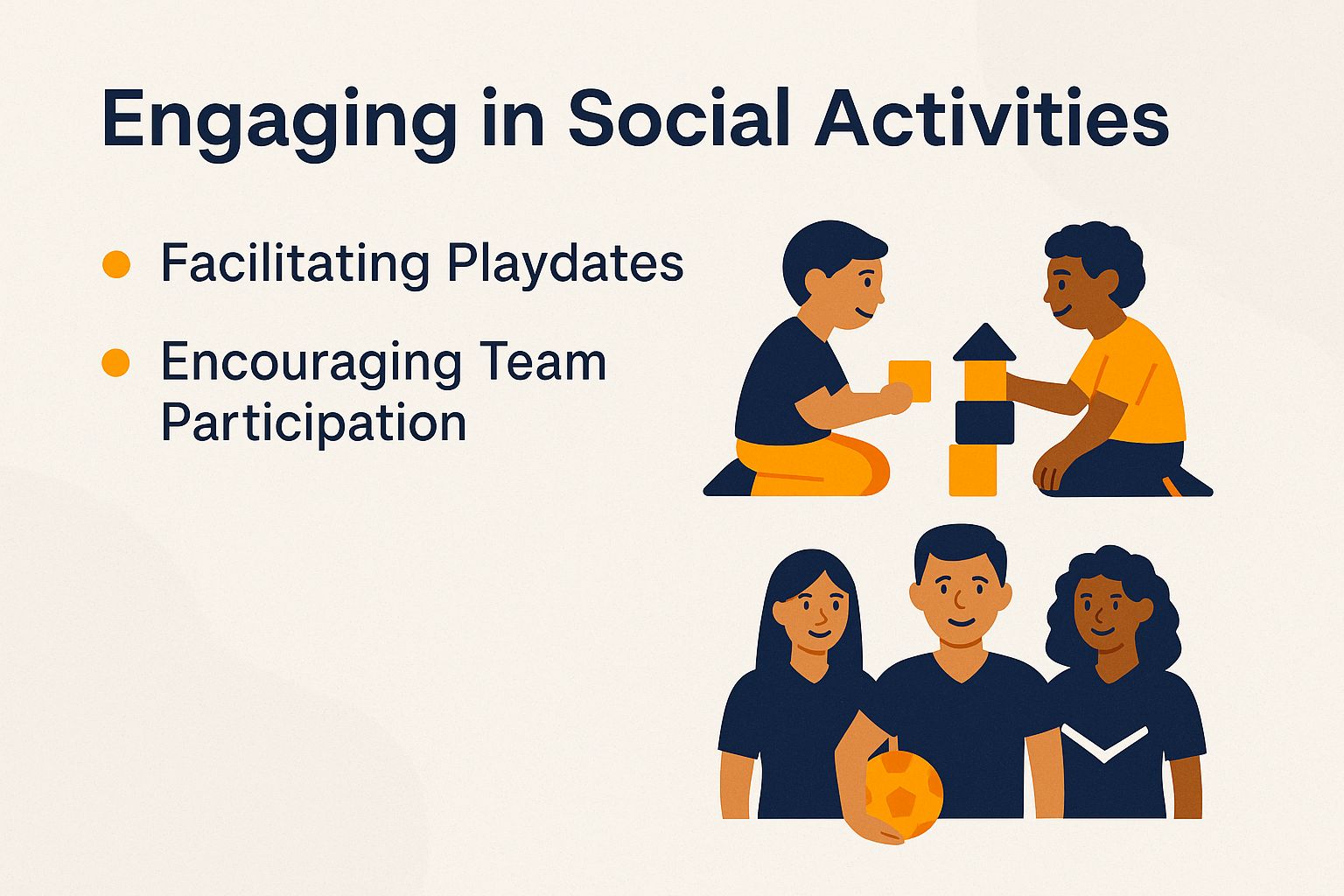
How Can I Boost My Child’s Confidence for The Four Plus?
What if the secret to unlocking your child’s potential lies in their confidence? Parents often wonder, how can I boost my child’s confidence for the Four Plus, and the answer begins with building self-esteem during this crucial stage.
Strengthening their sense of self can set the foundation for a lifetime of resilience and joy. This journey is all about recognising their unique strengths, creating supportive environments, and celebrating even the smallest achievements. Ready to explore practical strategies that can transform your child’s self-image? Let’s dive in and discover how you can help them shine!
Importance of Confidence in Early Childhood
Confidence serves as a crucial foundation for emotional well-being, giving children the power to effectively navigate challenges and engage in social interactions. Research shows that children who possess high self-confidence are more inclined to succeed both academically and socially; for instance, 70% of confident children achieve better academic performance, while those with lower self-esteem often face difficulties in forming peer relationships.
To cultivate this essential trait, parents can encourage exploration in several ways:
- By offering choices in activities,
- Celebrating small achievements,
- Providing constructive feedback.
Participating in team sports or group projects can also enhance cooperation and develop social skills, further reinforcing their confidence in diverse situations. For an extensive analysis of how fostering a growth mindset can support these efforts, our comprehensive study explores strategies for building resilience in young learners. Ultimately, creating a nurturing environment is vital for fostering resilient and self-assured individuals.
Understanding the Four Plus Stage
The Four Plus stage is a crucial period in child development, characterised by the emergence of a growth mindset and the enhancement of social skills. During this stage, children experience considerable cognitive and emotional growth. They begin to engage in cooperative play, which is vital for fostering teamwork and effective communication.
Activities such as interactive games, art projects, and group storytelling serve as excellent opportunities to enhance their social skills. For example, organising a scavenger hunt promotes collaboration among children, while puppet shows provide a platform for them to explore emotions and different perspectives.
Additionally, incorporating structured playdates or group projects can further encourage empathy and problem-solving abilities, which are essential traits for their overall development.
Recognising Your Child’s Unique Strengths

Identifying and nurturing a child’s strengths can greatly enhance their confidence and self-esteem, helping to guide them towards their passions.
It is important to recognise these abilities and provide support, as doing so fosters a positive environment for their personal growth.
Identifying Talents and Interests
Parents have the opportunity to identify their child’s talents by observing their natural inclinations and participation in a variety of activities. To effectively uncover your child’s interests, it is beneficial to engage them in diverse experiences, such as art, sports, and science experiments. Pay close attention to their reactions; enthusiastic responses often indicate a heightened level of interest.
Following these activities, it is helpful to ask open-ended questions such as,
“What did you enjoy most about that activity?”
This kind of dialogue encourages their self-expression and deepens their insight into their preferences.
Additionally, consider using a journaling app, such as Day One or Journey, to track these interests over time. This approach not only helps organise your observations but also assists children in reflecting on what truly excites them.
Encouraging Self-Expression
Fostering self-expression is vital for emotional growth, as it enables children to articulate their thoughts and feelings in creative ways.
One effective approach to encourage this is through art projects. A simple visit to your local craft shop can yield supplies such as paints, sketchbooks, and felt-tip pens, all for around £20.
You might consider engaging your child in themed projects, such as creating family portraits or depicting landscapes from around the world. Additionally, storytelling sessions at home can further enhance their creativity—encouraging them to invent stories and act them out can be quite enriching.
Incorporating technology can also be beneficial; for example, using apps like Tellagami for animated storytelling can make the experience interactive and enjoyable.
Creating a Supportive Environment

A supportive environment plays a crucial role in fostering confidence, as it allows children to feel safe while they explore and learn from their experiences. This nurturing backdrop is key to developing resilience and adaptability—concepts central to the growth mindset for young learners.
Establishing a Safe Space for Exploration
Establishing a designated area where children can explore freely, without the fear of judgement, fosters both independence and creativity.
To create a safe exploration space, it is advisable to start by dedicating a room or a corner specifically for this purpose. Implement child-proofing measures such as socket covers, corner guards, and safety latches to reduce potential hazards.
Incorporate a variety of materials that inspire creativity, including crayons, building blocks, and fabric scraps. The overall setup typically ranges in cost from £50 to £100.
For instance, converting a spare bedroom into a vibrant creative retreat with colourful furniture can significantly enhance the environment, allowing children to thrive as they experiment with various forms of play.
Setting Realistic Expectations
Setting achievable goals is an effective way for children to develop a sense of accomplishment, which in turn boosts their self-esteem and motivation. To establish realistic expectations, it is beneficial to break larger tasks into smaller, manageable goals.
For instance, if a child is in the process of learning to read, one might set a goal for them to read five pages a day rather than expecting them to complete an entire book at once. It is important to celebrate their progress with praise or small rewards, such as stickers or additional playtime.
Using visual progress charts can also be highly motivating. Creating a colourful chart where they can mark off completed tasks not only keeps children engaged but also instils a sense of ownership over their achievements.
Promoting Positive Self-Talk

Educating children about the importance of positive self-talk can have a profound effect on their confidence and emotional resilience.
By encouraging them to cultivate a supportive internal dialogue, we can help them navigate challenges with greater assurance and stability.
Teaching Affirmations
Implementing daily affirmations can significantly give the power to children by reinforcing a positive self-image and promoting resilience. It’s a good idea to start by creating a list of simple, age-appropriate affirmations, such as
“I am brave” or “I can learn anything I try.”
Encourage your child to repeat these statements each morning, ideally as part of their daily routine.
To enhance this practice, you might consider using apps like ‘ThinkUp,’ which is free and offers guided affirmations while allowing users to record their own voice. Additionally, reinforcing this practice by discussing the affirmations at the end of the day can be beneficial.
This helps children connect their affirmations to real-life situations, making the experience more meaningful and impactful.
Modeling Positive Language
Children learn by example, so using positive language in daily interactions can greatly impact their self-perception. To effectively model positive language, consider implementing the following strategies:
- Consistently replace critical remarks with specific, constructive feedback. For instance, say “I appreciate how you shared your toy” instead of “Why are you so selfish?”
- Make it a habit to incorporate appreciative phrases into your daily conversations, such as “Well done on your homework!”
- Engage in role-playing scenarios, allowing both of you to practice positive dialogue in a fun and interactive way.
This approach reinforces a supportive communication style, increasing the likelihood that children will adopt it in their interactions with others.
Encouraging Independence

Encouraging independence in children is essential as it helps them develop critical life skills and build confidence.
This foundation prepares them to face future challenges with resilience and competence.
Allowing Choices
Offering children choices in their daily activities promotes a sense of control and responsibility, ultimately enhancing their confidence. To implement this approach effectively, there are several strategies worth considering.
For example, allowing children to choose between two outfits each morning can significantly boost their self-expression and decision-making skills. Similarly, providing a selection of healthy snacks, such as fruit or yoghurt, during snack time gives them a sense of autonomy while encouraging healthy eating habits.
Additionally, establishing a weekly activity selection process, where children can vote on family outings or games, fosters collaboration and deeper engagement in family life. This practice nurtures a valuable sense of ownership and belonging within the family unit.
Fostering Problem-Solving Skills
Teaching children to tackle problems strategically fosters resilience and confidence in their abilities. To begin, it is essential to help them identify the problem clearly. For instance, if a child is experiencing a disagreement with a friend, encourage them to articulate exactly what happened and how it made them feel.
Next, guide them in brainstorming potential solutions. This might involve discussing ways to apologise or how to approach their friend to resolve the situation.
It is also important to have them evaluate the outcomes by considering how each solution could impact their friendship. By walking through these steps in real-life scenarios, children can learn to approach conflicts thoughtfully and develop valuable life skills that will serve them well in the future.
Engaging in Social Activities

Social activities are essential for fostering children’s confidence and emotional intelligence, as they encourage teamwork and the formation of friendships.
Engaging in these activities allows children to learn valuable social skills and navigate their emotions in a supportive environment.
Facilitating Playdates
Organising playdates offers children valuable opportunities to develop social skills and build friendships in a comfortable environment. To set up effective playdates, it is advisable to choose a familiar setting, such as your home or a favourite park, as this sense of familiarity helps children feel secure.
It is also beneficial to plan structured activities that encourage interaction, such as board games, arts and crafts, or group sports, to ensure that all children are engaged. Additionally, promoting open-ended play allows children to explore their creativity and develop their own games.
Scheduling these playdates on a monthly basis can help foster relationships and provide children with consistent opportunities for socialisation, ultimately enhancing their emotional and social development.
Encouraging Team Participation
Participation in team activities, such as sports or group projects, plays a significant role in reinforcing children’s sense of belonging and building their confidence. To encourage this team participation, you might consider enrolling your children in local sports leagues, which typically have a fee of around £50.
Additionally, community clubs focused on interests like art or science can foster new hobbies while providing a team-like atmosphere. Promoting family involvement in group activities—such as weekend walks or board game evenings—can strengthen family bonds and illustrate the importance of teamwork.
These experiences collectively enhance essential social skills, including communication, cooperation, and problem-solving, which are vital for children’s emotional and personal development.
Celebrating Achievements

Acknowledging and celebrating achievements, regardless of their size, plays a crucial role in helping children feel valued and enhancing their self-esteem.
Recognising Small Wins
Acknowledging small victories plays a crucial role in encouraging children to pursue more significant accomplishments while reinforcing positive behaviour. To effectively recognise these small wins, it may be beneficial to implement a few strategies.
- First, consider creating a “win board” in your home where children can visually showcase their achievements, whether it’s completing chores or performing well in a test.
- Additionally, during family meals, make it a practice to verbally praise their efforts, emphasising the value of hard work.
- Another effective approach is to write encouraging notes and leave them in their lunchboxes or books, serving as reminders of their accomplishments.
These methods foster a positive feedback loop, helping children understand that their efforts lead to recognition and further motivation.
Creating a Reward System
Establishing a reward system can be an effective way to motivate children to achieve their goals while also reinforcing positive behaviour. To create an effective reward system, it is beneficial to incorporate a combination of tangible and experiential rewards.
For instance, you might implement a sticker chart, where children earn a sticker for each completed task. Once they accumulate ten stickers, they can select a small prize, such as a toy or a book. Additionally, planning family outings—like a trip to the zoo—can serve as larger rewards for achieving significant milestones.
Encouraging peer recognition is also a valuable component; having children acknowledge each other’s efforts can enhance social bonds. One particularly successful case involved parents who paired this system with monthly family game nights, fostering an environment that celebrates both fun and achievement.
Recap of Key Strategies
Recapping the essential strategies, it is clear that recognising strengths, promoting positive self-talk, and celebrating achievements play a significant role in development.
To implement these strategies effectively, one should begin by observing the unique talents and interests of the child, as this recognition helps to foster their confidence. Next, it is beneficial to encourage self-talk by modelling positive affirmations during challenging situations. For example, saying something like,
“I can tackle this problem,”
can be quite impactful.
It is also important to celebrate even the small victories. For instance, when a child completes a challenging assignment, taking a moment to acknowledge their hard work with praise or a small reward can reinforce their efforts.
These practices not only contribute to building self-esteem but also help to instil a growth mindset, which is essential for lifelong learning.
Encouragement for Parents
Parents play a crucial role in their child’s journey towards building confidence, and their encouragement can truly make a significant difference. To nurture this confidence, parents can adopt specific strategies.
- One effective approach is to regularly praise efforts rather than just outcomes. For instance, acknowledging a child’s hard work on a project is much more beneficial than focusing solely on the final mark.
- Engaging in active listening is also essential; validating their feelings by saying something like, “I understand that you’re feeling upset about that,” shows empathy and support.
- Encouraging independence is another key strategy. Allowing children to make choices—whether it’s what to wear or how to spend their pocket money—can foster a sense of autonomy.
- Additionally, modelling resilience by sharing personal experiences with failure can be enlightening for children, demonstrating that setbacks are simply a part of growth and learning.
Final Thoughts on Confidence Building
Building confidence is a crucial aspect of personal growth that plays a significant role in shaping children’s futures and enhancing their emotional intelligence. Engaging in specific activities can greatly boost a child’s confidence.
For instance, encouraging participation in team sports not only improves their physical skills but also fosters a sense of belonging among peers.
Teaching children public speaking skills through drama or debate clubs can significantly enhance their communication abilities, enabling them to express themselves more clearly and effectively.
Additionally, parents can create a safe environment for their children to explore new activities, whether it is cooking a meal or learning to play a musical instrument. This reinforces the understanding that making mistakes is an integral part of the learning process.
As children navigate these experiences and achieve success, their self-esteem is likely to flourish naturally.
Frequently Asked Questions
What is the Four Plus and why is it important for my child?
The Four Plus is an entrance exam for selective schools in the UK for students aged four and above. These schools are highly competitive, so performing well on the exam can greatly increase your child’s chances of attending a top school.
How can I boost my child’s confidence for the Four Plus?
1. Provide positive reinforcement and praise for their efforts.
2. Encourage them to practice and prepare for the exam.
3. Remind them that their worth is not determined by the exam results.
4. Share stories of your own failures and how you overcame them.
5. Focus on their strengths and celebrate their progress.
6. Create a supportive and stress-free environment for studying.
What are some activities I can do with my child to improve their Four Plus skills?
1. Practice with past exam papers to familiarize them with the format.
2. Play games such as puzzles, memory games, and word exercises.
3. Read challenging books and discuss the story and characters.
4. Encourage them to solve mathematical problems in everyday situations.
5. Engage in role-playing activities that require quick thinking and decision making.
6. Use educational apps and online resources to supplement their learning.
Should I hire a tutor to help my child prepare for the Four Plus?
It depends on your child’s individual needs and learning style. A tutor can provide personalised attention and guidance, but it’s important to find the right fit for your child. Additionally, it’s important to continue reinforcing their skills and confidence outside of tutoring sessions.
What can I do to help my child manage test anxiety for the Four Plus?
1. Talk openly about their fears and concerns.
2. Teach them relaxation techniques such as deep breathing.
3. Create a study schedule to alleviate last-minute cramming.
4. Practice positive self-talk and remind them of their capabilities.
5. Encourage them to view the exam as a learning opportunity rather than a test.
6. Seek professional help if the anxiety becomes overwhelming.
What should I do if my child does not pass the Four Plus?
First of all, remember that the exam is just one part of the admissions process and does not define your child’s abilities. It’s important to remain positive and supportive, and to work with your child to identify areas for improvement. You can also consider alternative schooling options or retaking the exam in the future if your child is motivated to do so.



